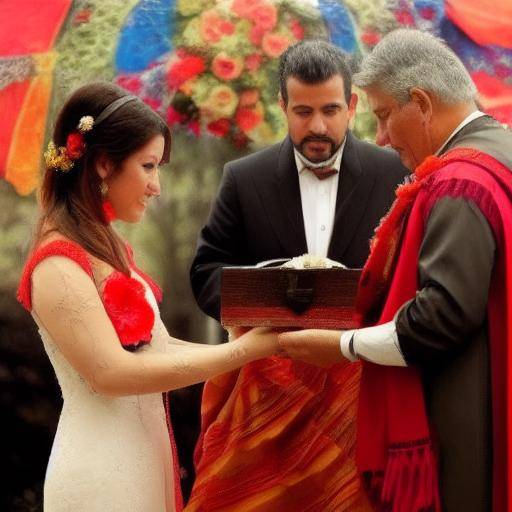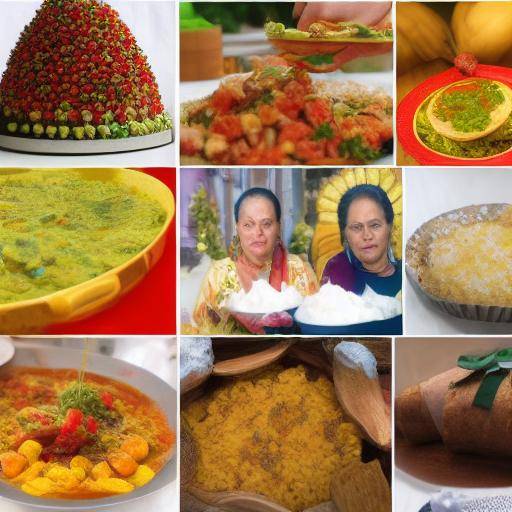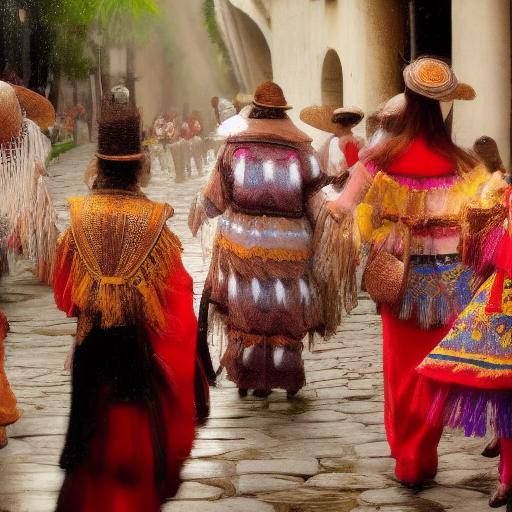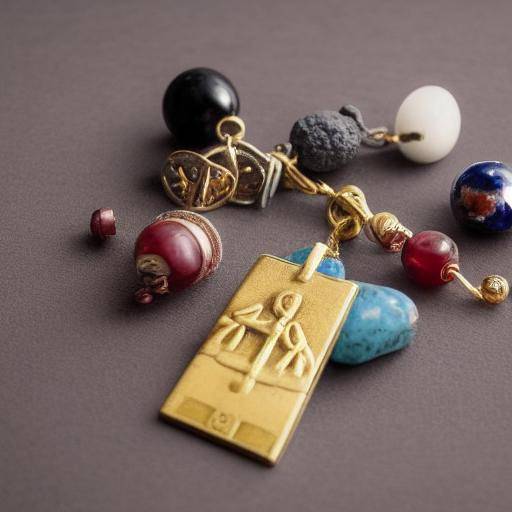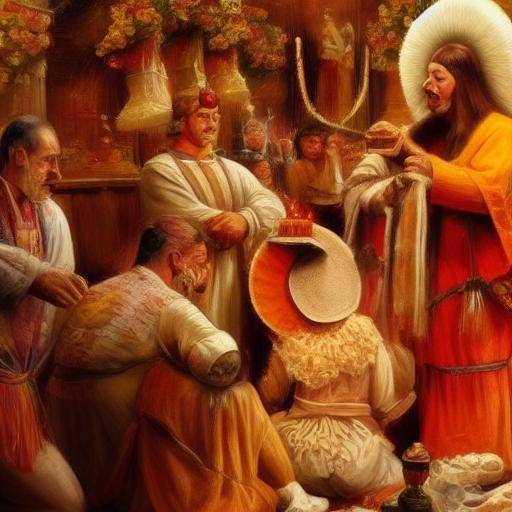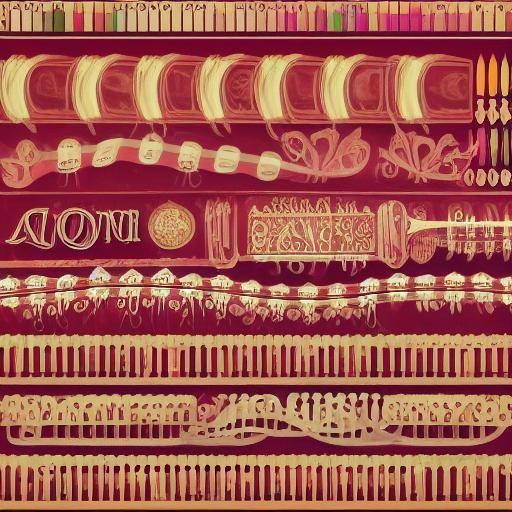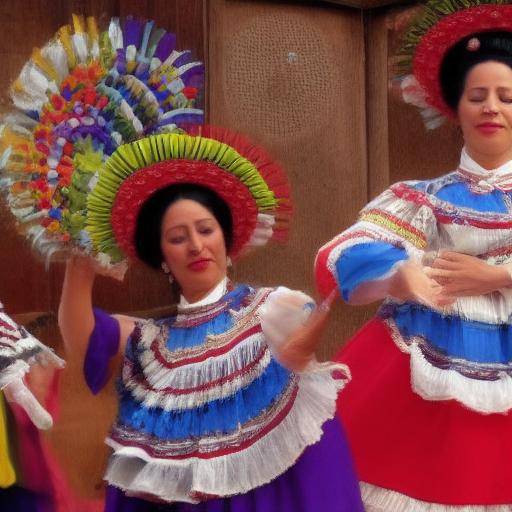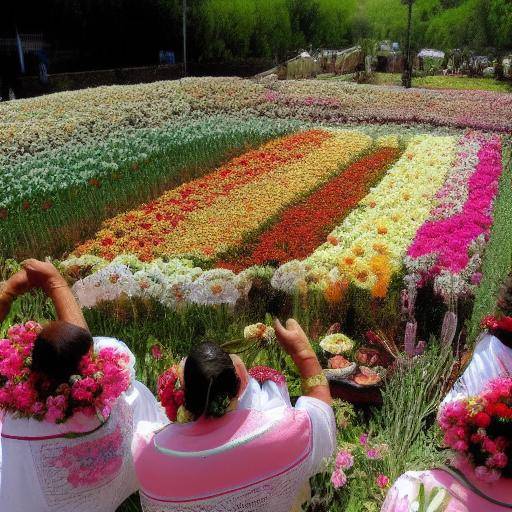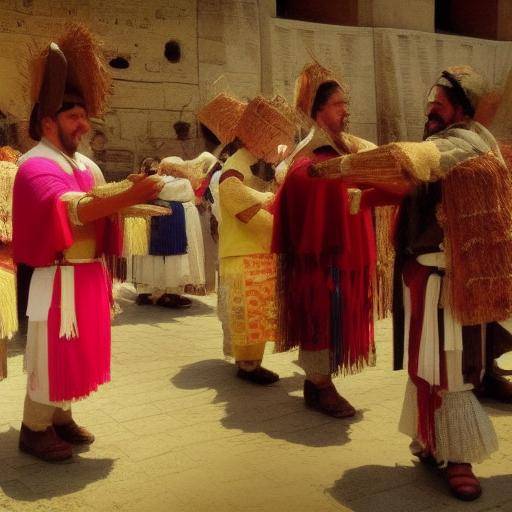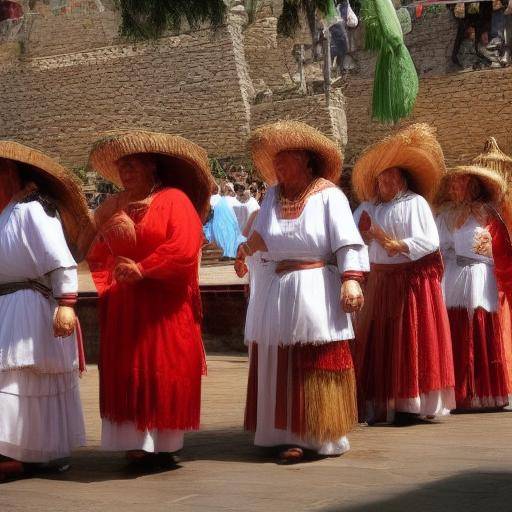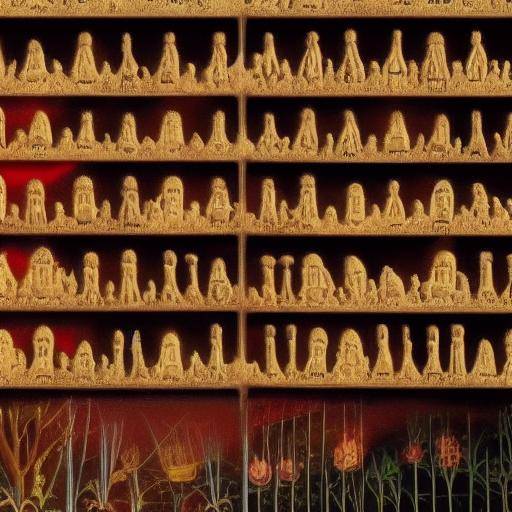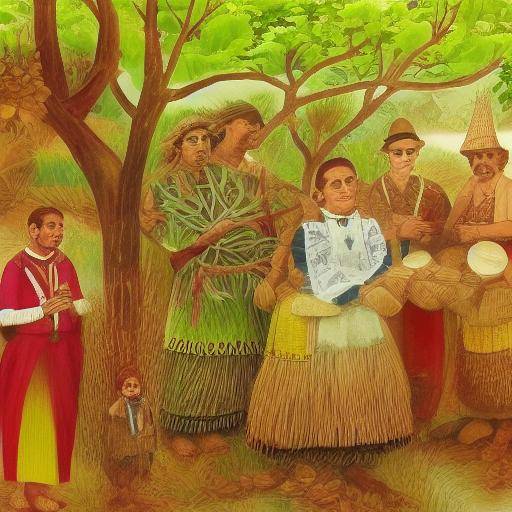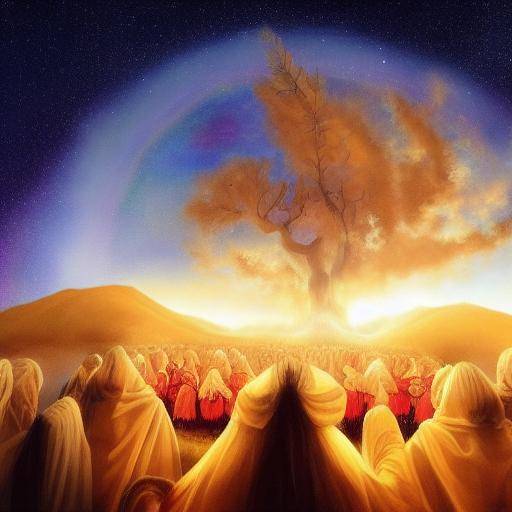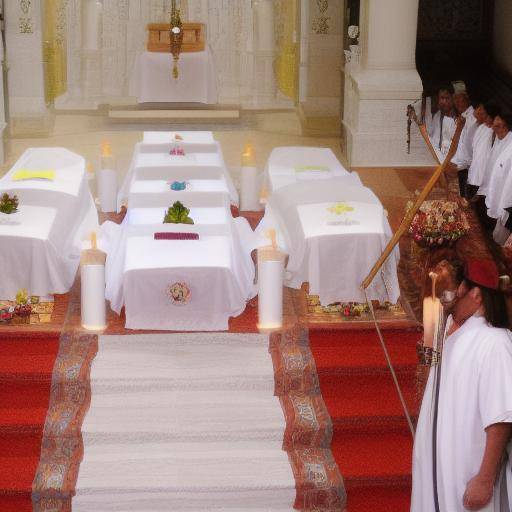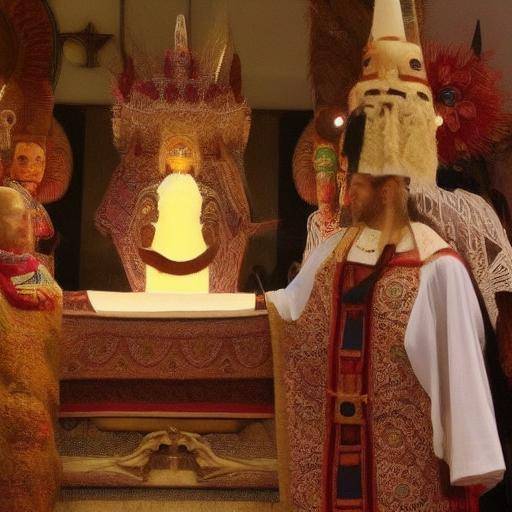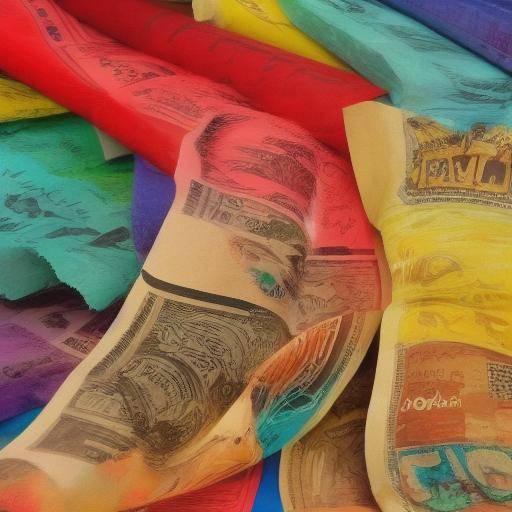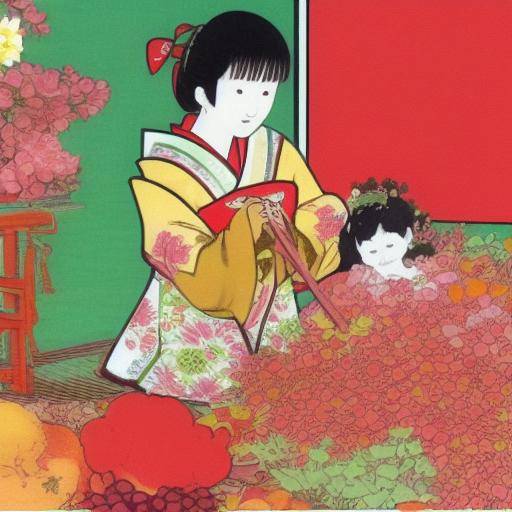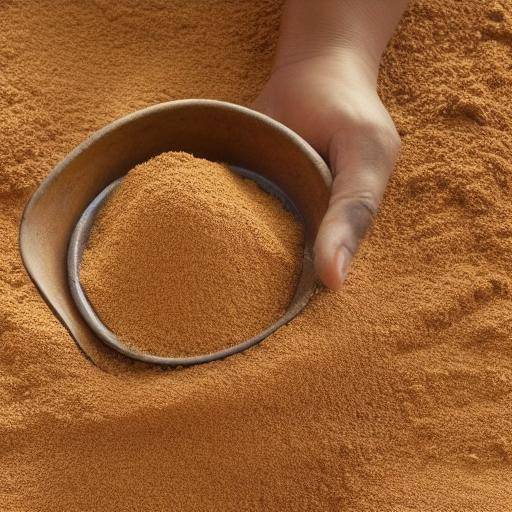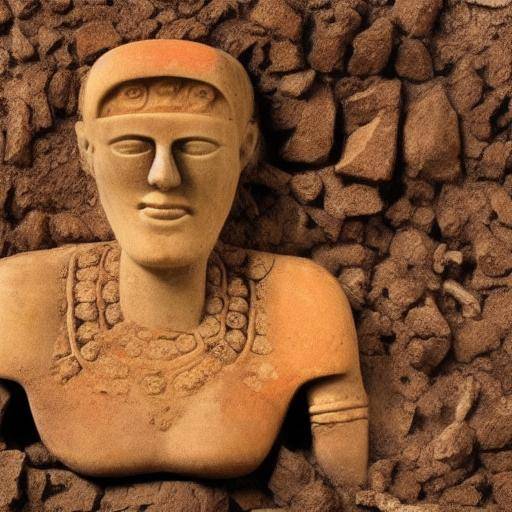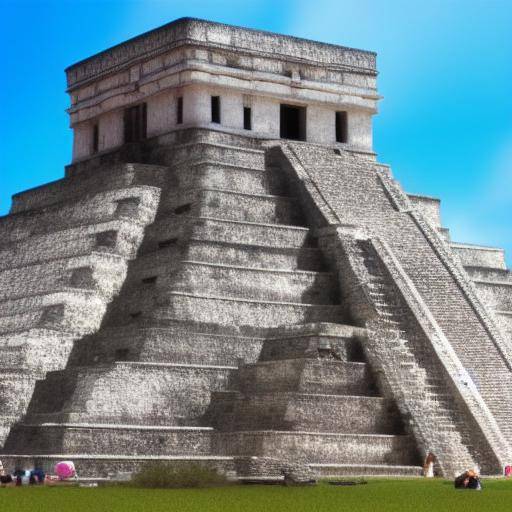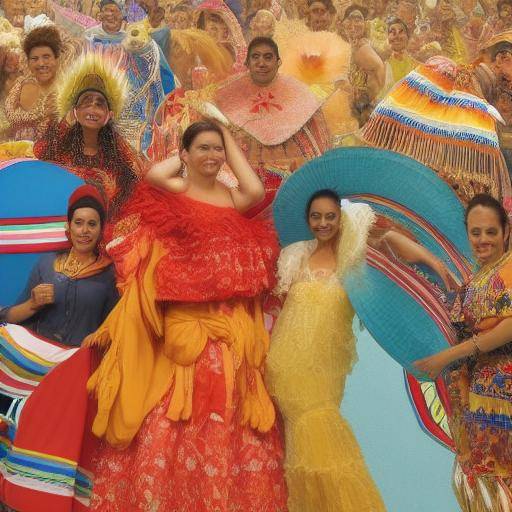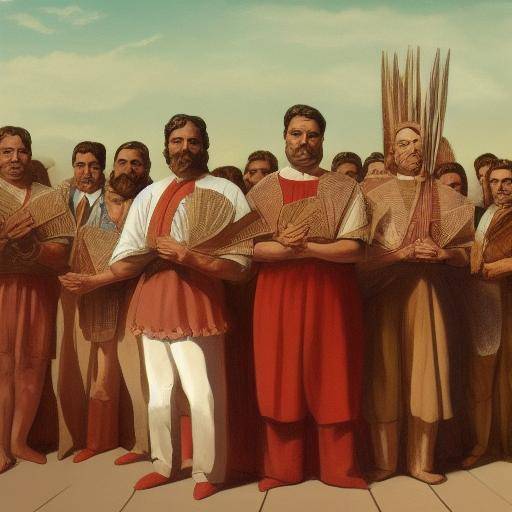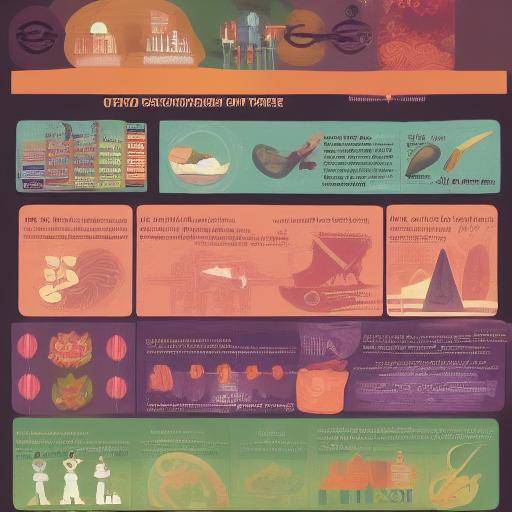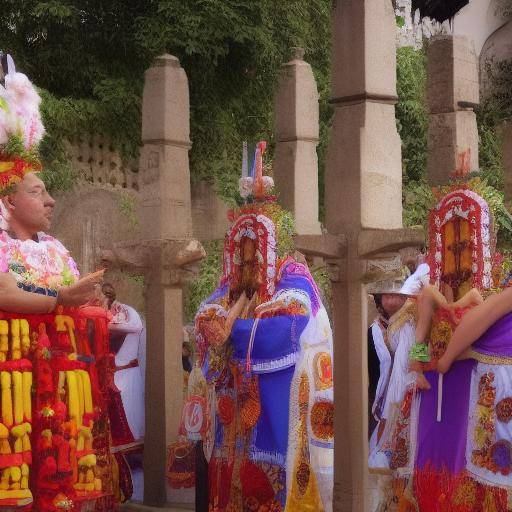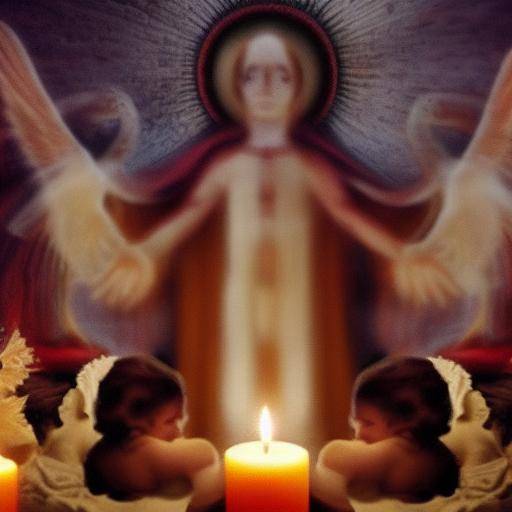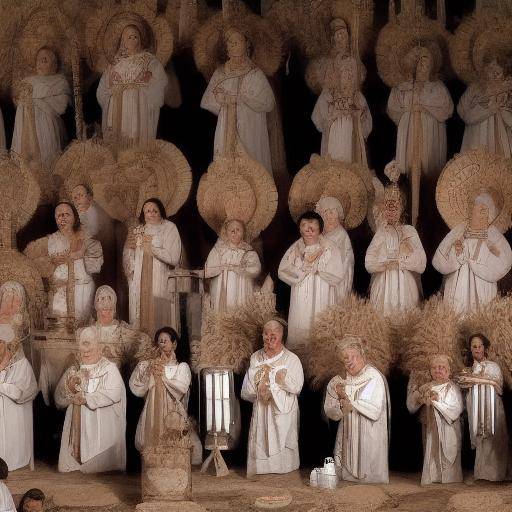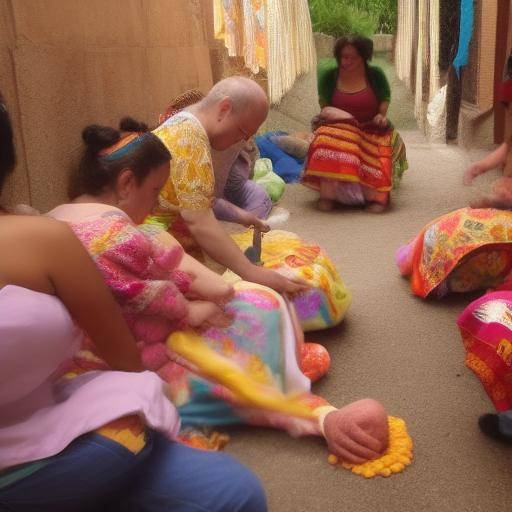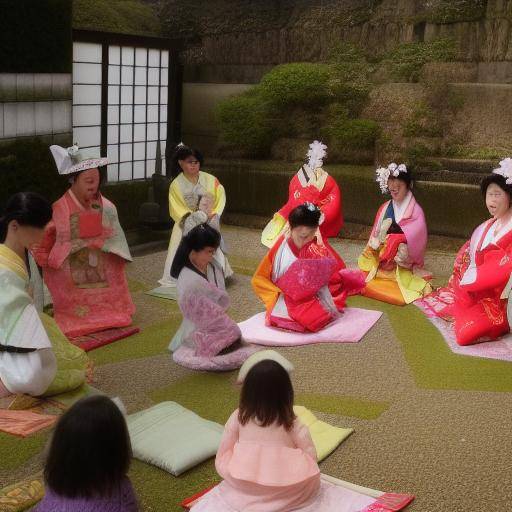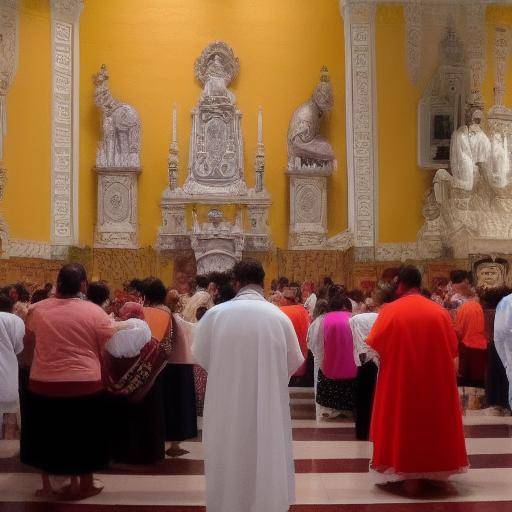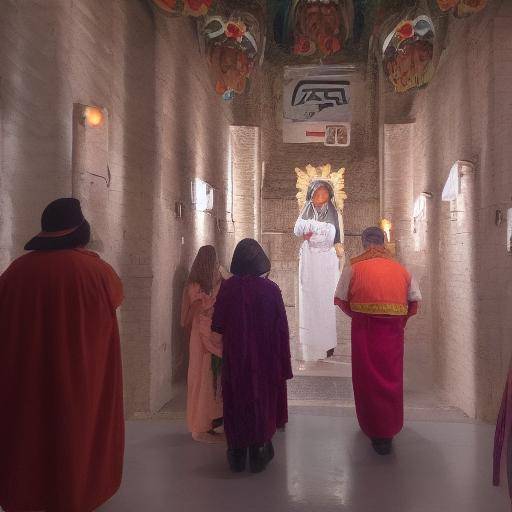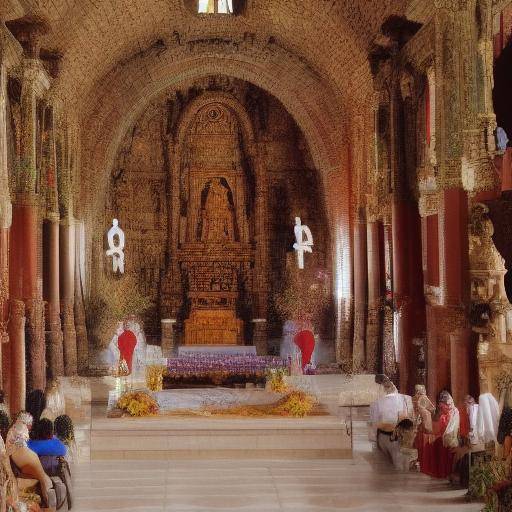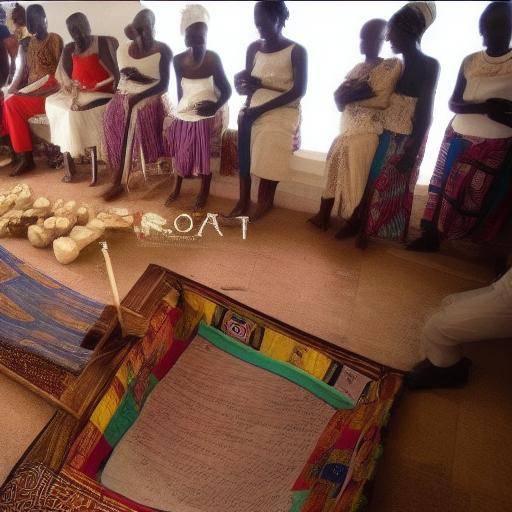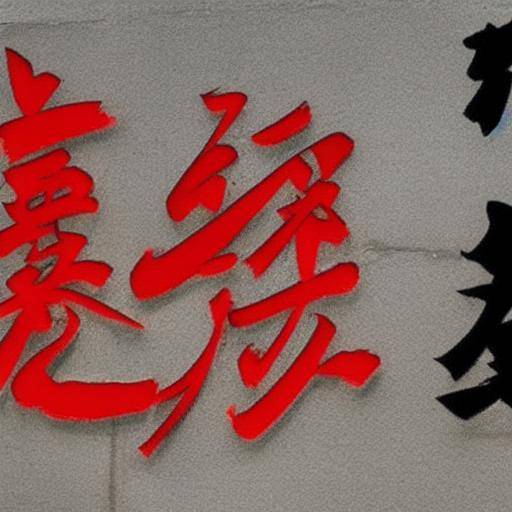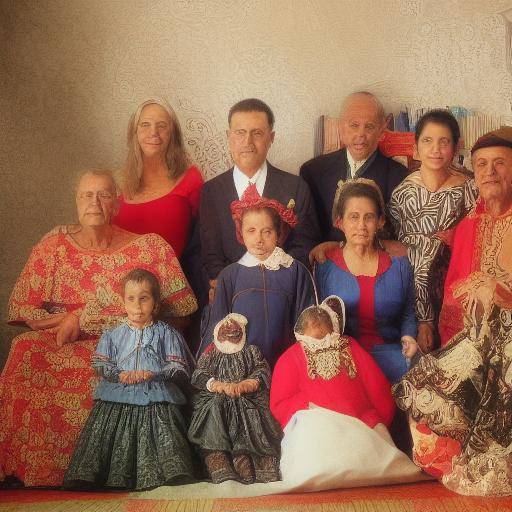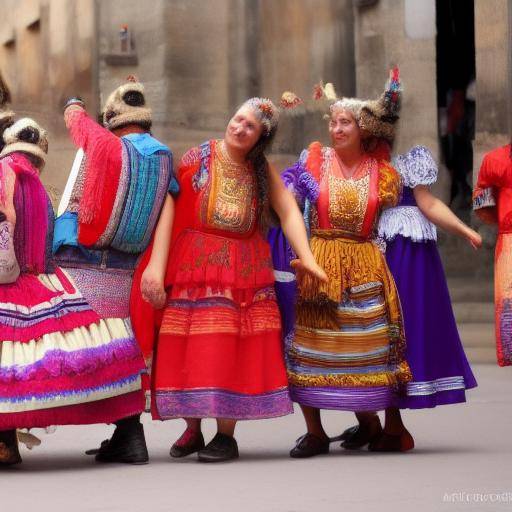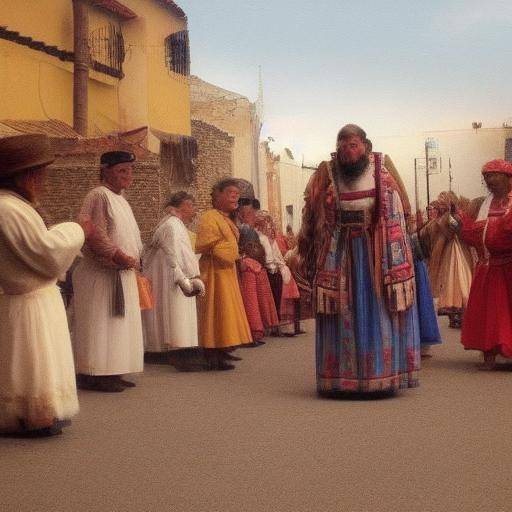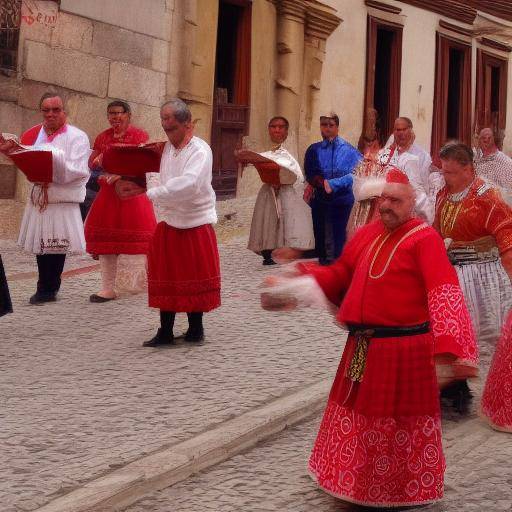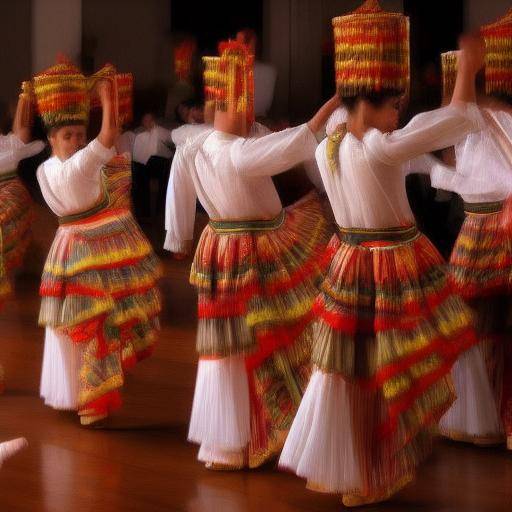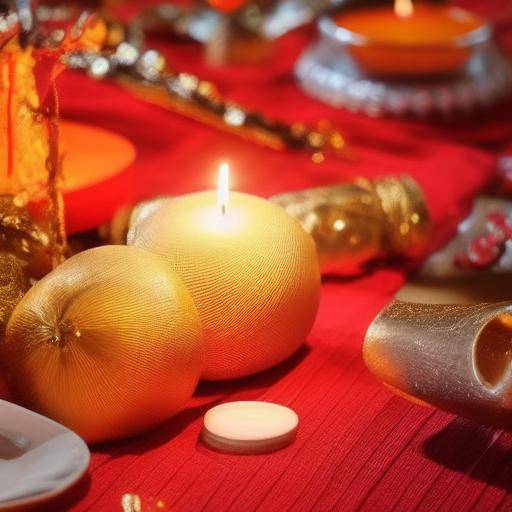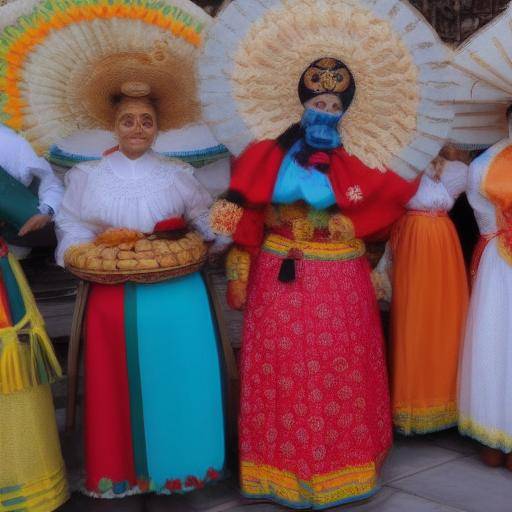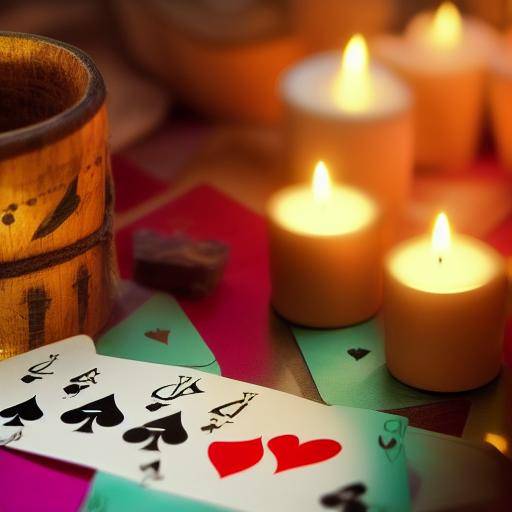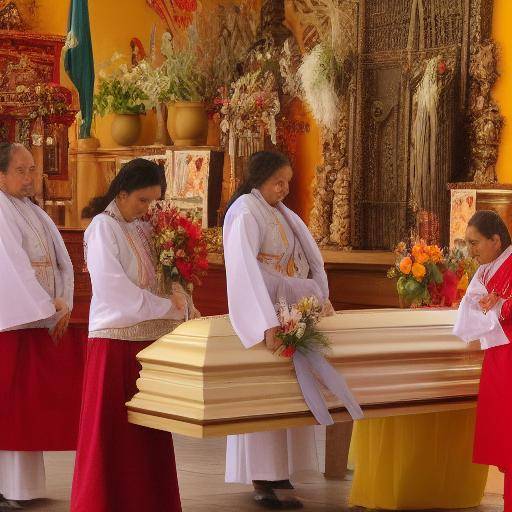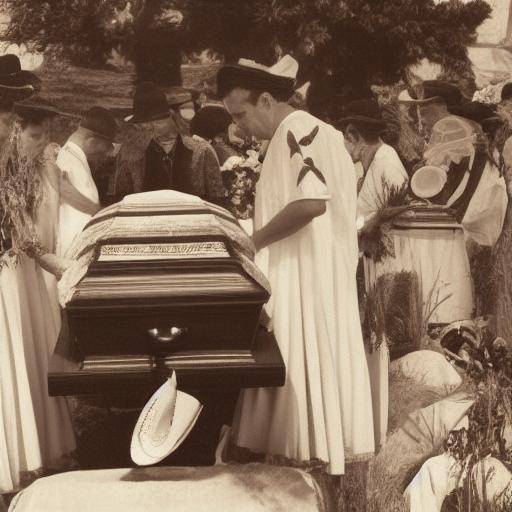
Funeral rites represent one of the oldest and most significant ways to honor loved ones who have passed away. Throughout ancient traditions, these rituals have played a fundamental role in the mourning process, offering comfort and giving meaning to the transition between life and death. In this article, we will explore in depth the meaning of funeral rites in the different ancestral traditions, as well as their evolution throughout history. From antiquity to contemporary practices, we will analyze how these rituals have shaped cultures and provided a framework for understanding life and death. In addition, we will examine the continuing relevance of funeral rites in today's society and its impact on the mourning process.
History and Background
Funeral rites have their roots in the earliest civilizations, where they were associated with spiritual and religious beliefs rooted in the concept of life after death. In ancient Egypt, for example, mummification was practiced to preserve the body of the deceased in order to ensure its existence in the beyond. Similarly, in Chinese culture, elaborate rituals were performed to ensure that the soul of the deceased found its way to the kingdom of ancestors. These examples illustrate the profound interconnection between funeral rites and ancestral traditions, where death was seen as a crucial step in the spiritual journey.
Over time, funeral rites have experienced significant changes, influenced by cultural, social and religious factors. For example, in medieval Europe, complex funeral ceremonies were developed that reflected Christian beliefs and the social structure of the time. These rituals not only honored the deceased, but also provided comfort to loved ones in a mourning period. As civilizations developed and expanded, funeral rites adapted to the changing needs of society, adopting new forms and meanings.
Analysis in Deep
The meaning of funeral rites in ancestral traditions transcends the purely ceremonial. These practices play a crucial role in the mourning process, providing space for the expression of emotions, the memory of the deceased and the quest for comfort. At present, funeral rites continue to be a vehicle to honor and celebrate the lives of those who have passed away, while allowing the awards to begin the process of emotional healing.
From a historical perspective, funeral rites have also marked significant milestones in the development of human civilization. Old funeral structures, such as Egyptian pyramids or Viking tumults, not only represented the greatness of the cultures that built them, but also provided a tangible legacy that lasts until today. These funeral monuments are testimony to the importance attached to the preservation of the memory and legacy of the ancestors.
Exhaustive examination
Beyond their emotional and symbolic meaning, funeral rites play a crucial role in preserving cultural identity. Through these rituals, values, traditions and customs are transmitted from generation to generation, consolidating the bond between people and their ancestral heritage. By preserving and celebrating funeral rituals, communities keep their historical roots alive and strengthen their sense of belonging.
In the contemporary context, funeral rites continue to evolve to adapt to the changing needs and perspectives of modern society. Funeral practices have experienced significant diversification, reflecting greater cultural diversity and increasing plurality of decrees and individual preferences. From traditional ceremonies to more personalized and eclectic approaches, funeral rites today reflect the diversity of human perspectives and experiences.
Comparative analysis
By comparing funeral rites in different ancestral traditions, a wealth of similarities and contrasts emerges that offers a deeper insight into how cultures have addressed the issue of death and mourning. While some practices focus on spiritual connection with the deceased, others emphasize emotional expression and the celebration of life. These variations reflect the complexity and wealth of human experience in relation to death and the transcendent meaning that ancient and contemporary societies attribute to the transition from death.
Practical Tips and Accessible Recommendations
In confronting the process of planning funeral rites, it is important to consider individual needs and desires, as well as family traditions and beliefs. Choosing rituals and ceremonies can play a crucial role in facilitating the mourning process and celebrating the life of the loved one. In addition, creating spaces for the expression of emotions and memories, as well as the search for emotional support, are essential elements in building an enriching environment for those facing loss.
Industry Perspectives and Expert Reviews
Professionals in the funeral sector and experts in mourning psychology play a key role in family counselling and support at this difficult time. Their knowledge and experience provide guidance for the planning of meaningful rituals and the navigation of emotional complexities associated with grief. Moreover, its vision of current and future trends in funeral rites offers a valuable perspective on the evolution of these practices over time.
Case Studies and Practical Applications
Through case studies, you can appreciate the variety of approaches and adaptations of funeral rites in different cultural and social contexts. These experiences provide a valuable insight into the ways communities address grief and honor their loved ones. In addition, they highlight the importance of flexibility and cultural sensitivity in planning and performing meaningful funeral rituals.
Future Trends and Predictions
As societies continue to evolve, funeral rites are likely to continue to reflect greater diversity and a more personalized approach. Emerging trends point to the creation of more meaningful and life-centred experiences that reflect the unique individualities of those who have died. In addition, contemporary technologies and tools are expected to play a growing role in the way funeral rites are planned and carried out.
Conclusions
Funeral rites in ancestral traditions have played a fundamental role in the way societies have addressed death and mourning throughout history. Although these rituals have evolved and adopted new forms over time, their fundamental meaning as a vehicle to honor, celebrate and give meaning to the transition between life and death remains relevant today. In understanding the wealth and diversity of funeral practices, we can appreciate the deep connection between funeral rites and cultural heritage, as well as the impact they have on the commemoration of the lives of those who have died.
Frequently asked questions
What is the importance of funeral rites in ancient cultures?
Funeral rites have been fundamental in ancient cultures, as they provide a framework to honor the deceased, facilitate the process of mourning and preserve the memory and legacy of the ancestors. In addition, these rituals have served to strengthen the sense of identity and belonging of communities throughout history.
How have funerary rites evolved over time?
Funeral rites have experienced significant changes over time, influenced by cultural, social and religious factors. From more ceremonial and religious practices to more personalized and life-centred approaches, funeral rites have reflected the diversity of human perspectives and experiences.
What impact do funeral rites have on the mourning process?
Funeral rites play a crucial role in the mourning process by providing space for the expression of emotions, the memory of the deceased and the quest for comfort. These practices offer a significant framework for loved ones to honor and celebrate the life of the deceased, while allowing them to initiate the process of emotional healing.
How to select funeral rites that reflect family traditions and beliefs?
When selecting funeral rites, it is important to consider family traditions and beliefs, as well as individual needs and desires. Keeping an open and understanding dialogue with loved ones can help honor the memory of the deceased in a meaningful and respectful way.
What is the role of funeral professionals in planning significant funeral rites?
Funeral sector professionals play a key role in providing guidance and support to families in planning meaningful funeral rites. Their experience and knowledge can help create an enriching and respectful environment to honor the life of the deceased.
How are you expected to evolve funeral rites in the future?
Funeral rites are expected to continue to reflect greater diversity and a more personalized approach in the future. Emerging trends point to the creation of more meaningful and life-centred experiences, reflecting the unique individualities of those who have died, as well as the growing role of contemporary technologies in the planning and realization of these rituals.
In short, funeral rites in ancestral traditions have played an integral role in the way societies have addressed death and mourning throughout history. Its evolution over time reflects the wealth and diversity of human experiences, as well as its fundamental meaning as a vehicle to honor, celebrate and give meaning to the transition between life and death. In understanding the importance and impact of these rituals, we can appreciate more deeply their influence in commemorating the lives of those who have died and their relevance in the cultural and emotional context of the communities.

